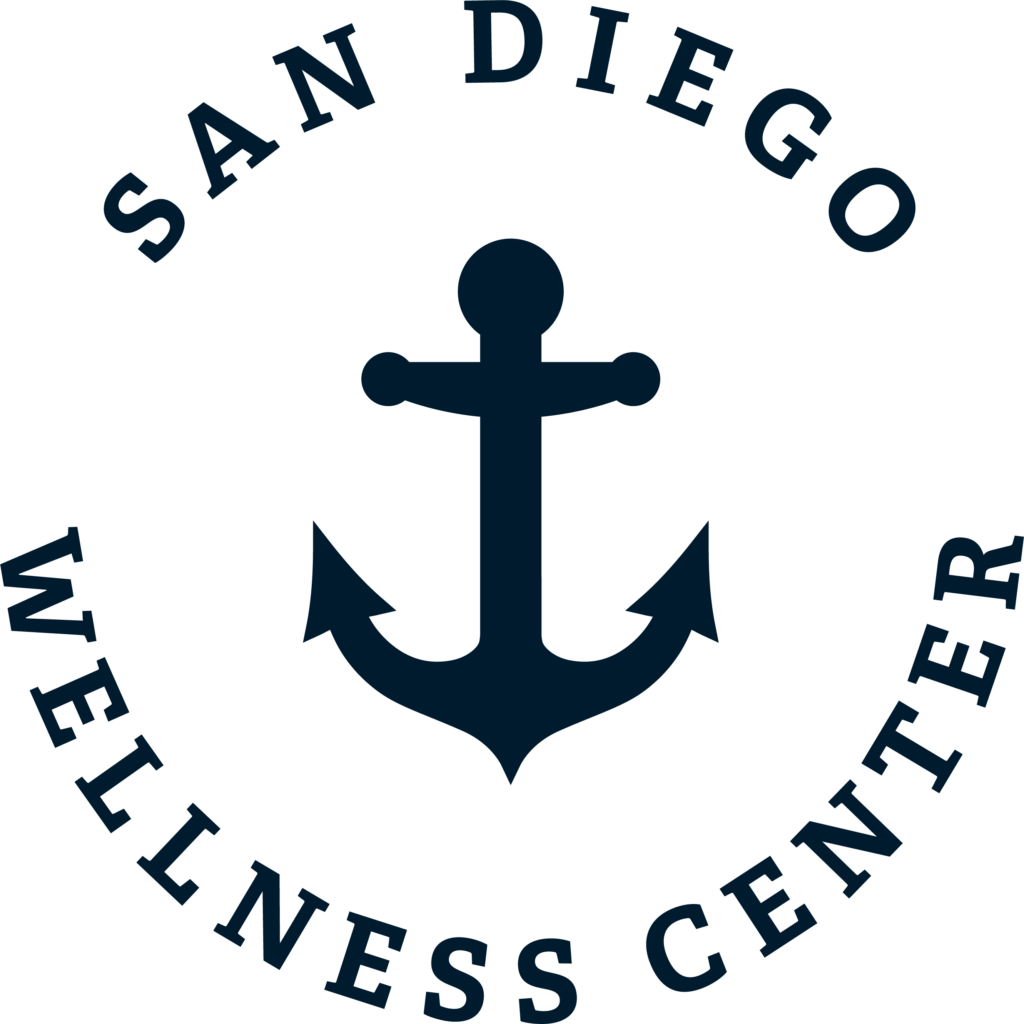Key Takeaways
- Cognitive behavioral therapy, dialectical behavior therapy, and trauma therapy offer effective methods to manage emotions, improve thought patterns, and build healthier coping skills.
- Holistic therapy for addiction recovery treats the entire person, addressing emotional, mental, and physical needs to support long-term healing.
- Evidence-based therapies like CBT and DBT strengthen resilience, reduce relapse risk, and create practical strategies for sustainable recovery.
Addiction often brings with it more than physical dependence. It reshapes thoughts, emotions, and relationships in ways that can feel overwhelming. The process of recovery requires more than just detoxing from substances. For healing to be sustainable, people need care that addresses not only physical health but also the emotional and psychological factors that drive substance use.
At San Diego Wellness Center, we see every day how deeply people want to rebuild their lives. We also see how difficult it can be without the right tools. Holistic therapy creates a bridge between short-term sobriety and long-term recovery by combining proven treatments like cognitive behavioral therapy (CBT), dialectical behavior therapy (DBT), and trauma therapy. Each of these approaches offers unique strengths, yet when combined, they create a supportive framework that helps people not just get sober but truly live in recovery.
What Is Holistic Therapy in Addiction Recovery?
Many people wonder, what is holistic therapy, and how does it connect with addiction recovery? In simple terms, holistic therapy means treating the whole person rather than focusing only on symptoms of addiction. Substance use does not happen in isolation. It is usually tied to emotions, thoughts, relationships, and life stressors. Holistic therapy takes all of these elements into account.
Instead of focusing only on stopping drug or alcohol use, holistic therapy aims to heal the mind and body together. This approach integrates medical treatment with psychological therapies, often incorporating lifestyle practices such as nutrition counseling, mindfulness training, and physical activity.
For people in recovery, this approach matters because it provides more than temporary relief. It teaches practical tools that can be used long after treatment ends. Clients develop resilience, healthier coping strategies, and a renewed sense of control over their lives.
Why Holistic Therapy Works in Recovery
Addiction recovery is not just about abstaining from substances. It is about building new habits and ways of thinking that make long-term sobriety possible. Holistic therapy works because it goes beyond addressing cravings or withdrawal. It gets to the root causes of addiction.
For example:
- A person might drink to cope with stress at work. Holistic therapy would not only help them stop drinking but also give them healthier tools to manage stress.
- Someone might use drugs to numb unresolved trauma. Therapy would focus on healing those past wounds so that substances are no longer the only form of relief.
This is why San Diego Wellness Center integrates holistic methods into every treatment plan. By combining therapies, clients gain both immediate support and long-lasting strategies.
Cognitive Behavioral Therapy (CBT) for Addiction Recovery
Cognitive behavioral therapy has become one of the most widely practiced therapies in recovery centers across the country. At its core, CBT focuses on the connection between thoughts, feelings, and actions.
When people are trapped in cycles of addiction, they often develop thought patterns that reinforce substance use. For example, someone might think, “I cannot handle stress without drinking.” This thought leads to the behavior of drinking, which then reinforces the belief. CBT breaks this cycle.
How CBT Works
CBT helps clients identify automatic negative thoughts and challenge them with healthier perspectives. In practice, this may involve:
- Keeping a journal of thoughts and emotions
- Recognizing triggers that lead to cravings
- Reframing negative beliefs into more balanced ones
- Practicing problem-solving skills for everyday challenges
Through this process, clients develop awareness of the inner dialogue that shapes their actions. They then learn to replace destructive thoughts with constructive alternatives.
The Role of CBT in Relapse Prevention
Relapse prevention is one of the strongest benefits of CBT. By identifying thought patterns before they turn into actions, clients can intervene early. For instance, when stress builds, CBT equips individuals with techniques like deep breathing, self-reflection, or positive self-talk instead of reaching for substances.
CBT is not about perfection. It is about progress. With practice, these new thought patterns become second nature, making it easier to stay committed to recovery even during stressful times.
Dialectical Behavior Therapy (DBT) and Emotional Balance
Dialectical behavior therapy is another form of evidence-based therapy that is particularly effective for people struggling with intense emotions. Addiction often develops as a way to escape overwhelming feelings. DBT teaches people how to manage emotions in healthier ways.
The Core Areas of DBT
DBT focuses on four main areas:
- Mindfulness: Staying present in the moment without judgment
- Distress Tolerance: Building the ability to handle crises without harmful behaviors
- Emotional Regulation: Recognizing and managing mood swings and emotional triggers
- Interpersonal Effectiveness: Developing stronger, healthier relationships
By strengthening these skills, DBT reduces emotional instability and builds resilience. Clients who once turned to substances to manage feelings gradually gain the confidence to face challenges without them.
Why DBT Matters in Addiction Recovery
Recovery often involves high levels of stress, especially in the early stages. Emotional regulation is critical during this time. Without it, frustration, anger, or sadness can quickly lead to relapse. DBT provides a structured framework for handling these moments.
For example, instead of reacting to stress with anger or despair, DBT teaches techniques like grounding exercises, relaxation strategies, or assertive communication. Over time, clients notice that their emotions no longer control their decisions. This sense of empowerment is key to maintaining recovery.
Trauma Therapy and Healing Emotional Wounds
Many individuals who struggle with addiction also carry the weight of trauma. Whether it comes from childhood experiences, relationships, or life events, unresolved trauma can drive people toward substances as a way to cope. Trauma therapy provides a safe, structured space to process and release this pain.
Types of Trauma Therapy Used in Recovery
Trauma-focused approaches include:
- Eye Movement Desensitization and Reprocessing (EMDR): Uses guided eye movements to help reprocess traumatic memories.
- Cognitive Processing Therapy: Helps people challenge and change unhelpful thoughts about traumatic experiences.
- Somatic Therapy: Connects body awareness with emotional healing, addressing the way trauma is stored physically.
By working through trauma, clients often find that their cravings for substances diminish because they no longer need them to numb emotional pain.
The Link Between Trauma and Relapse
Without addressing trauma, recovery can feel fragile. A person may do well in treatment but relapse when painful memories resurface. Trauma therapy builds long-term resilience by reducing these emotional triggers. Clients gain not only relief from the past but also the confidence to face the future with strength.
At San Diego Wellness Center, trauma therapy is woven into both medical detox and residential treatment, allowing individuals to heal deeply while receiving comprehensive care.
Comparing CBT, DBT, and Trauma Therapy in Recovery
| Therapy | Primary Focus | Key Techniques | How It Supports Recovery |
| Cognitive Behavioral Therapy (CBT) | Identifying and changing harmful thought patterns | Thought journaling, reframing negative beliefs, problem-solving exercises | Builds healthier coping skills and reduces relapse risk by addressing destructive thinking |
| Dialectical Behavior Therapy (DBT) | Regulating emotions and strengthening relationships | Mindfulness, distress tolerance, emotional regulation, interpersonal effectiveness | Helps manage intense emotions, improves communication, and provides stability in stressful times |
| Trauma Therapy | Processing unresolved trauma and emotional pain | EMDR, cognitive processing therapy, somatic techniques | Reduces triggers connected to past trauma, improves emotional resilience, and promotes long-term healing |
The Connection Between Holistic Therapy and Long-Term Recovery
Holistic therapy does more than address addiction in the short term. It builds a foundation for lifelong health. When CBT, DBT, and trauma therapy are combined, they create a system of support that strengthens every area of life.
Benefits of Holistic Therapy for Recovery
- Improved mental clarity and decision-making
- Reduced reliance on substances for emotional relief
- Stronger relationships and social support networks
- Healthier lifestyle habits that reinforce sobriety
Holistic therapy also helps people redefine what recovery means to them. Instead of focusing only on abstinence, they begin to see recovery as a path to a fuller, more balanced life.
Why San Diego Wellness Center Uses Holistic Therapy
At San Diego Wellness Center, we believe in addressing every aspect of recovery. Our programs combine medical detox, residential treatment, and holistic therapies so clients receive care that addresses both physical withdrawal and emotional healing.
We offer:
- Around-the-clock medical support for safety during detox
- Structured therapy sessions tailored to individual needs
- A supportive environment that encourages connection and growth
- Tools for relapse prevention and long-term wellness
This approach ensures that recovery does not stop at detox. Instead, clients leave with skills, strategies, and confidence that support them for years to come.
Moving Forward with Confidence in Recovery
Lasting recovery requires more than willpower. It requires tools, support, and therapies that address the root causes of addiction. Holistic therapy, including cognitive behavioral therapy, dialectical behavior therapy, and trauma therapy, provides exactly that. By focusing on the whole person, this approach creates a stronger path to sobriety and long-term well-being.
If you or someone you care about is ready to take the first step, San Diego Wellness Center is here to help. Contact our team today to learn how our medical detox and residential treatment programs can support recovery and healing.
FAQs
1. What is holistic therapy in addiction recovery?
Holistic therapy in addiction recovery addresses the physical, emotional, and mental needs of a person by combining evidence-based methods like CBT, DBT, and trauma therapy.
2. How does CBT help with addiction recovery?
CBT teaches individuals to identify negative thought patterns and replace them with healthier behaviors, reducing the risk of relapse and supporting long-term recovery.
3. What makes DBT different from CBT?
While CBT focuses on thoughts and behaviors, DBT emphasizes emotional regulation, mindfulness, and interpersonal skills, making it especially effective for managing intense emotions.
4. Why is trauma therapy important in addiction treatment?
Trauma therapy helps people process unresolved pain that often contributes to substance use, reducing emotional triggers that could lead to relapse.
5. Does San Diego Wellness Center provide holistic therapy for addiction recovery?
Yes. Our programs include CBT, DBT, trauma therapy, and other supportive practices within both medical detox and residential treatment settings.


